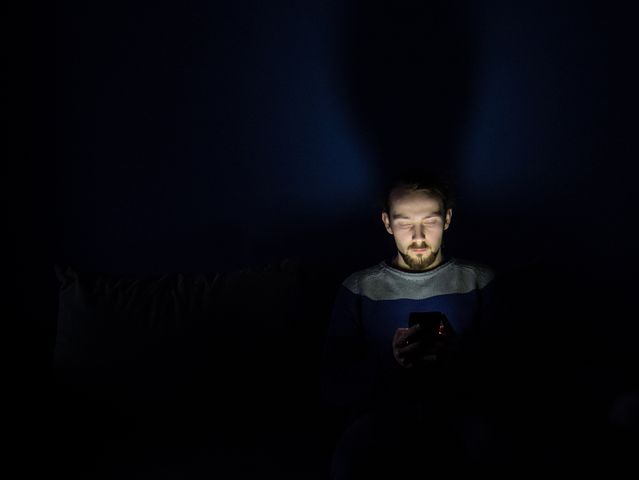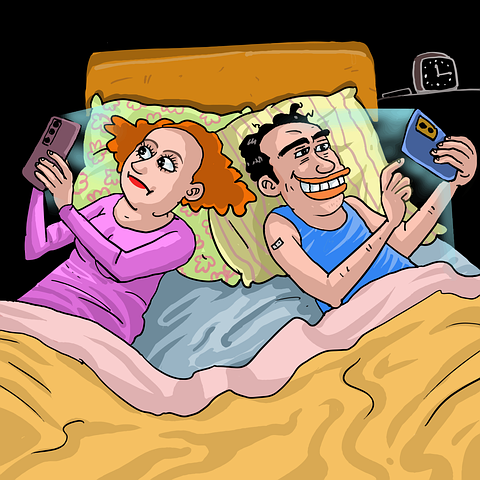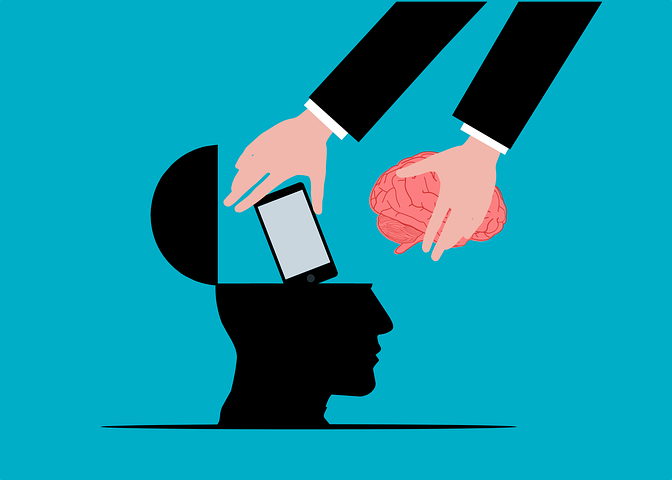Visitors have accessed this post 408 times.
A study from the University of California, San Diego, shows that people who use smartphones for more than two hours a day are more likely to have an increased risk for depression.
The study found that people who use their phone for more than two hours a day were three times as likely to experience depression symptoms as those who spent less time on their phones.
Some scientists believe that this is because the brain reacts to the constant distractions and notifications coming from your phone by producing lower levels of dopamine. This leads to feelings of anxiety and decreased self-esteem.
The study found that people who stopped using their smartphones for a few days experienced significant changes in their brain’s reward system.
The reward system is the part of the brain that produces feelings of pleasure and satisfaction. The researchers found that this system was less active in people who had been off their smartphones for a few days.
The study also found that participants’ heart rates and blood pressure had decreased, which is an indicator of reduced stress levels.
The study was conducted by a team of researchers from the University of Texas who used a smartphone app that monitored participants’ phone use over the course of four weeks. The researchers found that participants who reduced their phone use experienced an increase in mental well-being and life satisfaction.
This is not the first time studies about smartphone use have been conducted, but this is one of the first to find concrete benefits for those who reduce their dependence on smartphones.
The addictive nature of smartphones is no secret. But what are the side effects of using your smartphone?
The most common side effect is that you stop paying attention to the world around you. You are always looking down, even when you are walking in a crowded street. This can be dangerous, as you might not notice a car coming up on the sidewalk.
Another common side effect is that you stop being present in conversations with other people. When they talk to you, it feels like they’re talking to someone else and not to your face because your eyes are always glued to your screen.
There’s also evidence that using smartphones before bed can disrupt sleep patterns and make it difficult for people to fall asleep at night.
With the advent of smartphones, it’s become essential to have one with you at all times. But what are the side effects of using your smartphone?
The use of smartphones has been associated with a number of negative side effects. One such effect is that it can cause eye strain, which can lead to headaches and dry eyes. This is because when you look at your phone, you are looking at a bright screen from close up – often for hours on end. It also causes neck and back pain because people tend to slouch over their phones rather than sitting up straight. The blue light emitted by the screens can also affect sleep patterns, which leads to fatigue during the day and poor concentration as well as mood swings.
It’s been a year since I’ve stopped using my smartphone. I still have it, and I can see it on the table in front of me. But I haven’t turned it on for a whole year.
I had never fully understood how addicted to my phone I was until that day when I first left the house without bringing it with me. It was liberating to be away from all the distractions, but also scary and confusing at times.
The human body and brain is not made for the constant use of a smartphone. When you stop using your phone, your brain starts to heal from the addiction.
The human body and brain is not made for the constant use of a smartphone. When you stop using your phone, your brain starts to heal from the addiction. The addictive nature of smartphones can lead to addiction, depression, anxiety and loneliness – all of which have been linked to an increased risk of dementia in later life.
The blue light from the screens of smartphones and tablets is a major concern for many people. And for good reason too. The bright light can cause sleep problems, eye strain, headaches and more.
It is important to remember that it is not just the brightness of the screen that can be an issue. It is also how you use your phone before going to bed. If you are using your phone before bedtime, then you are exposing yourself to the blue light which will keep your brain active and interfere with your ability to fall asleep.
We are all addicted to our smartphones. We check it every hour or so and some of us even sleep with it next to the bed. But what happens if you stop using your smartphone for a day?
The first thing that would happen is that you will experience withdrawal symptoms. You will feel anxious, restless, and irritable. You might also feel like you have a huge void in your life and at the same time miss the constant connection that your phone provides.
However, after this initial phase of withdrawal symptoms, most people report feeling better than they did before they stopped using their phone. They claim that they were less distracted by their phone when they were not on it and found themselves more focused on what was happening around them.


